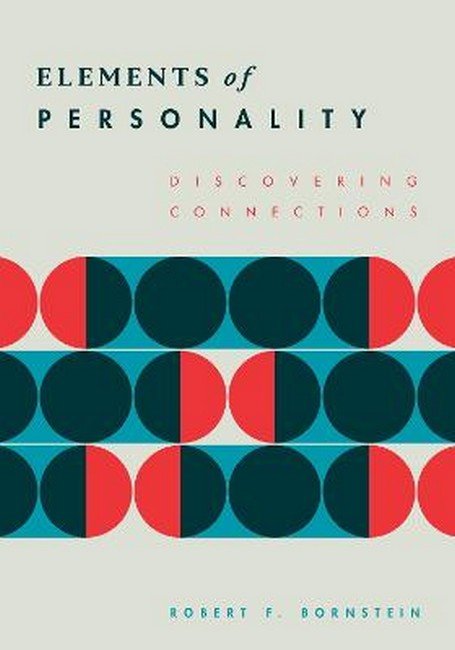Robert F. Bornstein, PhD, is a professor at the Gordon F. Derner School of Psychology at Adelphi University. He is an established researcher with national and international visibility and he has published more than 200 articles in peer-reviewed journals, along with about 60 book chapters, and written or edited more than a dozen books. Dr. Bornstein has received five federal grants from the National Institute of Mental Health and National Science Foundation. He is a fellow of the American Psychological Association, Association for Psychological Science, and Society for Personality Assessment, and served as the former president of SPA.
Request Academic Copy
Please copy the ISBN for submitting review copy form
Description
Preface Acknowledgements Chapter 1. What Is Personality? Why Study Personality? Four Perspectives on Personality Culture and Personality Personality Research Methods Personality: Discovering Connections Chapter Review Critical Thinking and Discussion Questions Key Terms Additional Readings and Resources Chapter 2. The Psychodynamic Perspective Eels, Brains, Cocaine, and Hypnosis Key Assumptions of the Psychodynamic Perspective The Topographic Model The Structural Model The Psychosexual Stages Psychoanalytic Treatment Psychoanalysis Reimagined: Object Relations Theory The Self-Representation and the Self-Other Dialectic Integrating Representations of Self and Other People: Attachment Theory Contemporary Psychoanalytic Treatments Chapter Review Critical Thinking and Discussion Questions Key Terms Additional Readings and Resources Chapter 3. Behavioral and Cognitive-Behavioral Models Psychology as the Behaviorist Views It Key Assumptions of the Behavioral Perspective Pavlov and Classical Conditioning Skinner and Operant Conditioning Conditioning and Personality Conditioning and Psychopathology Behavior Modification and the Token Economy The Shift From Radical Behaviorism to an Integrative Behavioral Perspective Cognitive Behavioral Treatments Chapter Review Critical Thinking and Discussion Questions Key Terms Additional Readings and Resources Chapter 4. Trait and Interpersonal Frameworks A Visit to Vienna and the Birth of Trait Theory Trait Theory in Context Key Assumptions of the Trait Perspective Allport's Lexical Approach Cattell and Factor Analysis A Consensus Emerges: The Five-Factor Model Traits and Dynamics: The Interpersonal Perspective Assessing Interpersonal Constructs Interpersonal Dynamisms Psychopathology and Psychotherapy Chapter Review Critical Thinking and Discussion Questions Key Terms Additional Readings and Resources Chapter 5. Humanistic and Existential Approaches Divergent Experiences, Converging Philosophies Key Assumptions of the Humanistic Perspective A Radical Departure Maslow: A Hierarchy of Needs Rogers: Self-Discrepancies Existential Personality Theory Existentialism Quantified: Terror Management Theory Effects of Mortality Salience on Behavior Chapter Review Critical Thinking and Discussion Questions Key Terms Additional Readings and Resources Chapter 6. The Future of Personality Paradigms of Personality: Past, Present, and Future Where Are We Now? Converging Themes Where Are We Going? The Future of Personality Why Are We Here? Chapter Review Critical Thinking and Discussion Questions Key Terms Additional Readings and Resources References Index About the Author

